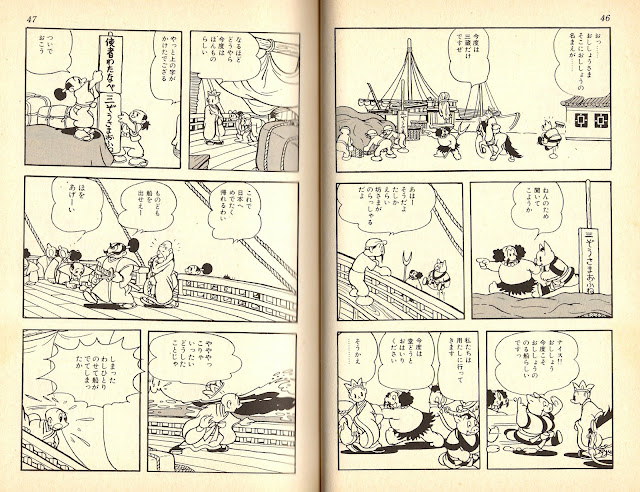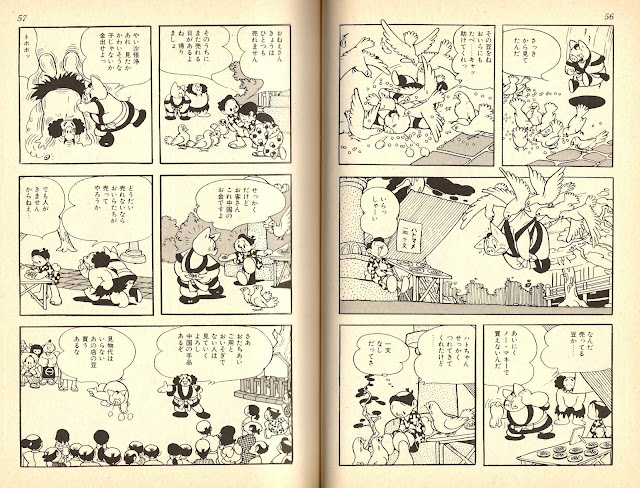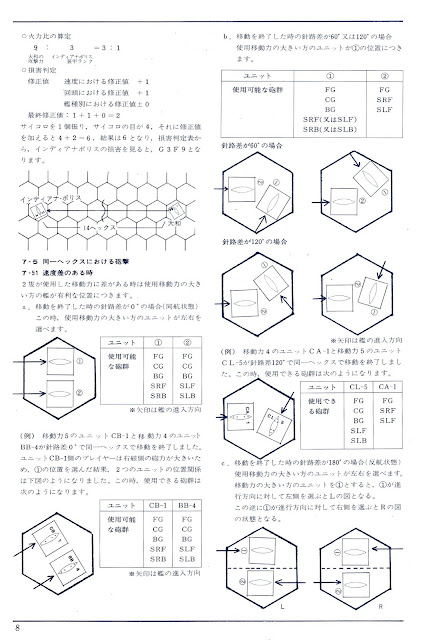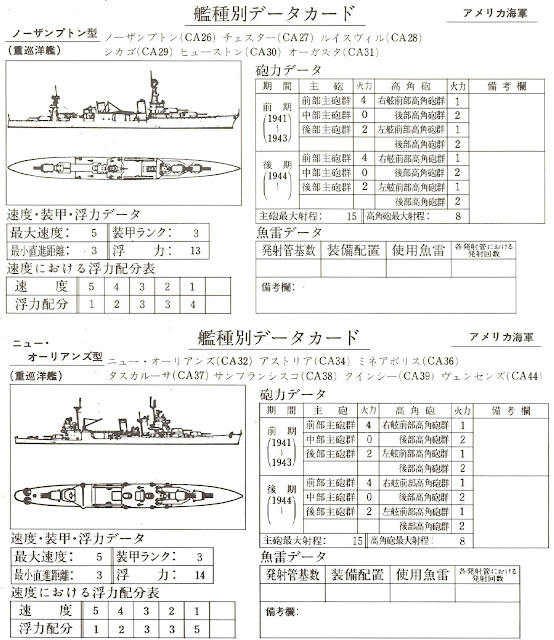手塚さんの三つ目がとおるで、"幽霊船"実は船底潜航艇、というのがありましたが、松本さん宇宙戦艦ヤマトの第三艦橋はそういうことでしょうか(笑)?
Monday, 30 September 2013
the character
Japanese sovereign's message in 607 AD.
This is shown in the section of Japan of "The history of Sui dynasty".
And the name of the king of Japan have been introduced in that document.
"His family name is Ame.
And his personal name that given after reaching adulthood is Tarishihiko."
倭王姓阿毎
字多利思比孤
(倭王/wa-ou・the king of Japan) (姓/sei・family name) (阿毎/Ame)
(字/azana・a personal name "that given after reaching adulthood") (多利思比孤/Tarishihiko)
It was written that way.
Note:"阿毎多利思比孤・Ame-Tarishihiko"
If we want pronounce in a row like this.
"Ama-no-Tarishihiko"
"Ame-no-Tarishihiko"
The sound might change as this.
・・・・・・・・・
By the way、字 (a personal name "that given after reaching adulthood").
I was examined in a dictionary about 字.
"In old China"
Although this proviso is attached.
"字 is a personal name that given after reaching adulthood."
It had been described so.
※I don't care about the national situation and write it without checking it、but of course the age of "adulthood" will be different from the current age. 20211006.
However、in this case、字 is mere personal name.
We think so simply、it will be no problem.
※In Japan today、there are not many cases where "字" are called "azana" (is it Japanese-style pronunciation?)、when called this way、it is often used in the last notation of an address(old-fashioned address that does not remain much in the city center).※
※Put simply、in Japan today、there is no custom to call a personal name "Azana". 20211006.
・・・・・・・・・
For example、"芝山泰生"
This is my name.
芝山 is my family name.
And 泰生 is my personal name.
This is the naming convention of modern Japan.
In the same way、"孔丘仲尼"
This is the name of Confucius.
孔丘 is his family name.
And 仲尼 is his personal name.
However、this is a mistake.
孔 is his family name.
丘 is his personal name.
And 仲尼 is 字.
In short、there was such naming convention in old China.
※I wonder if I wrote later in relation to 諱(imina・true name)?
・・・・・・・・・
Well.
Today、most general meaning of ”字" is "the character".
Its pronunciation is "ji".
☟
字・This part represents "the house".
字・This part represents "the child".
☝
"Parents raise their children carefully in the house."
Origin of 字.
It seems like that.
"Pregnancy."
"Birth."
And it seems there is such a meaning originally in 字.
I was a little surprised.
Because such meanings do not exist in this character now.(in Japan)
・・・・・・・・・
Long、long time ago in China.
Simple and primitive characters.
It seems to have referred to as 文("bun" or "mon" ※pronunciation of Chinese style in modern Japan).
And new complex characters was born with a combination of it.
It seems to have referred to as 字.
Incidentally、Chinese character of a formal "the character" in modern Japan.
It is 文字 (mo-ji).
Note:In modern Japan.
Meaning of ”the character” is strong in "字".
Meaning of "the sentence" is strong in "文".
※By the way、in modern Japan(I don't know in modern China、for example)、this "文" means "school" in the map notation.
At the same time、"卍 (man-ji)" means "a Buddhist temple" in map notation.※
Tuesday, 1 October 2013
real name
"First and last name."
This write as "姓名". (sei-mei)
Of course、姓 is "last name (family name)".
And 名(※in this usage、and in the case of a single character、this is usually pronounced "na" in Japan.) is "first name (personal name)".
倭王(姓)阿毎
(字)多利思比孤
In short、名 should be in there.
But it is not exist in there.
・・・・・・・・
In old Japan、there was a certain tradition of naming convention.
It called "イミナ・いみな". (imina)
This "imina" was actually 名.
Ancient Japanese. (Particularly noble.)
Real name of their own has been known to others、they were very afraid it.
Because it was required for curse.
Therefore、they hid it during lifetime.
And they used the nickname.
名 of 倭王(the king of Japan) does not exist in this history book of China.
Record officer probably was not able to know it.
So he might be recorded the nickname as 字.
※If so、what is the case in China?
Note:倭王(the king of Japan) seems to have inherited the nickname of 多利思比孤(tarishihiko).
And 阿毎多利思比孤
This is a phonetic equivalent.
The name of Japanese at the time.
The name of the Japanese title at that time.
etc..
Chinese at that time used phonetic equivalent for Japanese pronunciation.
※Japan's Manyo Gana may have followed this method.
・・・・・・・・・
"名"
Today、general meaning of 名.
It is "name" of all things.
(It is not limited to people.)
Well、this Chinese characters can be decomposed into two.
夕+口=名
Today、general meaning of "夕" is "the evening".
And general meaning of "口" is "the mouth".
Although "夕" in this case.
This is the abbreviation of "明".
Such an idea also seems to exist.
And in this case、meaning of "明" is "dawn".
"Sun and moon do not exist.
Darkness、this moment.
People call out to each other.
And they confirm each other."
Origin of 名.
It seems like that.
※As an aside、when writing タロ(taro) in Japanese katakana.
太郎 Taro(u)、this is the traditional Japanese "azana" for eldest son.
Or 一郎 Ichiro(u).
Put simply、in Japan today、there is no custom to call a personal name "Azana". 20211006.
注文。
私見ですが。
"言葉"を救出しないと。
一助として。
ドカベン第6巻
烏鵲填河成橋而渡織女。
美味しんぼ 108巻 被災地篇・めげない人々 / サイコロ4 / 美味しんぼ 46巻 究極の新居
イマンさんへのプロポーズですね。これは90年代初めにロッキンオンで読んだと思うのですが、"僕はもう高く飛ぶことはないけれど、君といるだけで笑顔でいられるんだ。僕は魔法を信じる。命のエンジェル。"という訳詩(ご本人による、とか・笑)を知ってる前提で、"The Wedding Song"を聴くと、正直、未だに泣きそうになることがあります。
on the wing with we fly one more time
lives
陳さんの孔明さんが目指す"天下三分の計"が、米ソ中冷戦の基本構造(本質)です。
陳舜臣さんの、です。 表紙がないのは、それだけ読み込んだとおもってもらえれば(詳しくはおぼえてません・笑)。
世界中の真っ当なヤクザ(真っ当な公務員との区別がつきませんが・笑)の人たちは自警団だ、以外の考えはないですね。顔面他力完コピ(とも思わんけど)、但し、左右逆。人造売春婦ズは斎藤由貴共々処刑。
松浦鉄道をキチガイ鉄道として観光化するなら周辺住民への説明、迷惑料の支払は佐世保市行政の義務だと思いますが、無能には求めませんが、駆け込み引っ越し増えるのもウザいので、ついでに、隔靴掻痒は俺じゃなくてもウザいと思うと思うぞ、簡単な話だ、運転手など、やってる奴ら、100人なら100人、一億人なら一億人、やる奴がいなくなるまで殺さなきゃ終わらない、皆殺。
"ウルトラセブン 第4話 「マックス号応答せよ」 (wikiによると1967年10月22日放送)"
"機動戦士ガンダム 第32話 「強行突破作戦」"
"機動戦士ガンダム 第33話 「コンスコン強襲」"
◆持衰 (じさい):倭の者が船で海を渡る際、持衰が選ばれる。持衰は人と接さず、虱を取らず、服は汚れ放題、肉は食べずに船の帰りを待つ。船が無事に帰ってくれば褒美が与えられる。船に災難があれば殺される。出典: フリー百科事典『ウィキペディア(Wikipedia)』邪馬台国より。
◆じ‐さい【自裁】自ら生命を絶つこと。自決。
◆じ‐さい【持斎】ヂ‥〔仏〕
①戒律を守って身心を清浄(しょうじょう)に保つこと。
②八戒を守ること。特に、正午を過ぎて食事をしないこと。
◆もち‐いつ・く【持ち斎く】
〔自四〕神としてあがめる。古事記[上]「阿曇連(あずみのむらじ)等が祖神(おやがみ)と―・く神なり」
◆はっ‐かい【八戒】〔仏〕布薩(ふさつ)の日、寺に出かけて一昼夜守る在家信者の八つの戒。五戒に、ゆったりとしたベッドに寝ないこと、装身具をつけず歌舞を見ないこと、昼すぎの食事をとらないこと、の三戒を加えたもの。八戒斎。八斎戒。八禁。
◆ご‐かい【五戒】〔仏〕在家(ざいけ)の守るべき五種の禁戒(きんかい)。不殺生(ふせっしょう)・不偸盗(ふちゅうとう)・不邪淫(ふじゃいん)・不妄語(ふもうご)・不飲酒(ふおんじゅ)。
◆ふさつ【布薩】(梵語 poadha)仏教教団で、出家僧侶が半月ごとに集まって戒律の条文を読みあげ、互いに自己の罪過を懺悔する儀式。在家信者では毎月六斎日に八斎戒を守ることをいう。
◆ろくさい‐にち【六斎日】仏教で、特に持戒して事を慎むべき日。毎月の8日・14日・15日・23日・29日・30日。在家の信者はこれらの日に八戒を守る。六施日。
→◆ろく‐さい【六斎】①六斎日の略。万葉集[5]「常に弓箭を執り―を避けず」
②六斎市の略。
③1カ月のうち日数6日を定めて事を行うこと。好色一代女[6]「月に―の忍び男」
→◆ろくさい‐いち【六斎市】中世後期以降、毎月6回定期に開かれた市。 →◆さん‐さいいち【三斎市】1カ月3回定期に開く市いち。中世の市は三斎市が多かった。
→◆ろくさい‐ねんぶつ【六斎念仏】
踊念仏の一種。初め六斎日に京都近辺で、のち彼岸・盆などに、死霊や怨霊の鎮魂のために鉦(かね)と太鼓を打って囃しながら節をつけて唱えた。起源については、平安中期の空也または鎌倉時代の道空(~1315)に始まるというが不詳。〔季〕秋
【広辞苑第六版より引用】
"機動戦士ガンダム 第31話 「ザンジバル追撃!」"
"機動戦士ガンダム 第32話 「強行突破作戦」"
"機動戦士ガンダム 第34話 「宿命の出会い」"
あのですね、たまにありますが(そもそもですが・笑)、本放送後、再放送用のリテイクカットでしょうか(笑)?
"ルパン三世 PART2 第145話 「死の翼アルバトロス」 (wikiによると1980年7月28日放送)""機動戦士ガンダム 第35話 「ソロモン攻略戦」"
"機動戦士ガンダム 第36話 「恐怖! 機動ビグ・ザム」"
冬木透矢立肇富野喜幸星山博之渡辺岳夫松山祐士大野雄二はゴミ処刑。
で。20211011。
※そういえば、身長が伸びたり縮んだり、流行ってんですか細菌?で。20211013。
※そういえば、夜間戦闘機(爆撃機)というのも仕様がよく分かっていませんが、夜戦用艦橋、単に視点が低い方が、とか思っていましたが、所謂当時水準超えの精密機器の集積場所とか(笑)、で、大和の何代目の方(最後?)か分りませんが、艦長が親戚だという話を、よく分らんが、という但し書き付きで、子供の頃聞いた覚えもありますが、と、いうわけで。20191210。
※そうそう、この様に、よく分ってないので、『航空母艦』はもうちょっと勉強してからで(笑)。対艦隊戦だったら、『スペースラナウェイ』のイデオンガンで一掃とか、"的"、ですが、『零戦』の初・中級ルールとか、で(『ジャブロー』『フォートレス』『ニュータイプ』と再結集したことですし、対艦隊戦の勉強には『ホワイトベース』がいい気がするんですけどね・笑)。
で、ふとおもいましたが、『スペースラナウェイ』の盤面を艦艇・重機動メカで埋め尽くし、で、イデオンガン・ソードで一掃、おれがやれば、現実世界にどれだけ影響出るんでしょうね(笑)。
たしか、イデオンガンは射界内の全てのユニットそれぞれに付きサイコロを1個振り、サイの目1~4、ソードは1~3で無条件除去(ガンとソードは射界が違う、ハズレは高度差を表してるのだろうと)。
で、ちなみに、イデオンには各レベルがあり、最初は平均的強めの重機動メカレベル(ソロシップともどもバリアーありますが)、で、被害を受けると逆にレベルがどんどん上がっていき(ガンとソードを使うとレベルが一つ下がる)、最終的にはマヌケな数値に(笑)。
で、まずあり得ませんが、運良く(笑)、イデオンかソロシップを破壊できれば、イデの発動で全員死亡で引き分け。
という、『スペースラナウェイ』は、そもそもロボットアニメ、云々をさておいたボードシミュレーションゲーム(シナリオには勝利条件てありますけどね・笑)。20211007。
ソードさておき、高度差として、イデオンガンの三角錐型?な破壊範囲に一律4てのは、(何でか)閉じられた戦闘空間、普通、重機動メカの方から攻撃に近づいてくるだろう(ミノフスキー粒子はないでしょうが、イデオン・ソロシップは極悪バリアー標準装備・笑)、で、小説内の表現で"イデオンガンは至近距離の敵には無力"、てのは、射界は前面のみ、ありますし、ちょいと掃射含め、均して4でいいのだろうな、と、一人合点を(笑)。20211011。
"01 PRETTY DOLL"
"02 CRASH COMPLEXION"
"03 恋をとめないで"
"04 CAN'T STOP THE SILENCE"
"05 二人のANOTHER TWILIGHT"
"06 IMAGINE HEROES"
"07 CLOCKWORK RUNNERS"
"08 BE MY BABY"
"09 路地裏のVENUS"
"10 RAMBLING MAN"
"11 そんな君はほしくない"
"12 CRY FOR LOVE"
and
"01 ROMANTICA"
"02 PROPAGANDA"
"03 LOVE CHARADE"
"04 1990"
"05 BLUE"
"06 MODERN VISION"
"07 THE WALL"
"08 NO MORE LIES"
"09 GOOD SAVAGE"
"10 HALF MOON"
"11 DRAGON CRIME"
"12 MAJESTIC BABY"
"13 AFTER THE RAIN"
and
"01 BE MY BABY"
"02 PRETTY DOLL"
"03 NO MORE LIES"
"04 LOVE CHARADE"
"05 MODERN VISION"
"06 BLUE"
"07 DRAGON CRIME"
"08 PROPAGANDA"
"09 GOOD SAVAGE"
"10 恋をとめないで"
"11 MAJESTIC BABY"
"12 1990"
"13 RAMBLING MAN"
"14 AFTER THE RAIN"
"02 CRASH COMPLEXION"
"03 恋をとめないで"
"04 CAN'T STOP THE SILENCE"
"05 二人のANOTHER TWILIGHT"
"06 IMAGINE HEROES"
"07 CLOCKWORK RUNNERS"
"08 BE MY BABY"
"09 路地裏のVENUS"
"10 RAMBLING MAN"
"11 そんな君はほしくない"
"12 CRY FOR LOVE"
and
"01 ROMANTICA"
"02 PROPAGANDA"
"03 LOVE CHARADE"
"04 1990"
"05 BLUE"
"06 MODERN VISION"
"07 THE WALL"
"08 NO MORE LIES"
"09 GOOD SAVAGE"
"10 HALF MOON"
"11 DRAGON CRIME"
"12 MAJESTIC BABY"
"13 AFTER THE RAIN"
and
"01 BE MY BABY"
"02 PRETTY DOLL"
"03 NO MORE LIES"
"04 LOVE CHARADE"
"05 MODERN VISION"
"06 BLUE"
"07 DRAGON CRIME"
"08 PROPAGANDA"
"09 GOOD SAVAGE"
"10 恋をとめないで"
"11 MAJESTIC BABY"
"12 1990"
"13 RAMBLING MAN"
"14 AFTER THE RAIN"
で、この映像は(映像は)以前"オフィシャル"ビデオで持っていたと思いますが(曲数が少ないのかも)。
"COMPLEX 19901108 完全版"
あれですかね、ざっくり、このライブ限定で、布袋さんのエフェクト操作(と雰囲気)はダミーとか(笑)?
でも、ボード音源というのか、わかりませんが、このクリーントーンに痩せた音は、おれみたいなアマチュアギタリストの人たちには参考になるうれしい音かも(もちろん、やっぱりうまいなあ、前提で・笑)20211006。
で。
エロス 9月 15, 2018
and
"COMPLEX 20110730 日本一心"
and
"COMPLEX TOUR 1989 Inkstick 芝浦"
で。
"All Cross Game Episodes ダイジェスト"
たしかに、当時、少年サンデーでタッチの浅倉南さんの表紙をみて、おれの中高の同級生石丸恵理子そのままだな、と、おもったことあるけど、月島若葉さんというか滝川あかねさんというか、は、おれの中学の同級生小林珠美に絵の才能ふくめ似てるな、と、"だれが回遊魚だ!"に、おもった(こないだはごめんね笑)。
究極的には、おれの超能力への自信もつきましたし、もはや、すべてはどうでもいい、やりたいようにやる、おれの望みが現実になる、と思ってますが。
overground
石原莞爾さんが帝国陸軍参謀ではなくゲルショッカーの大幹部だったら納得できる文章ですが(笑)、という、随分な作文ですが、実は石森章太郎さんのお父さんとか?
コスモ星丸くんの巾着袋はまだあります。
By the way、I was understood it by reading the text of the net、you know? David Bowie san's "Dead Man Walking" and "The Supermen" are the same chord progression.
差異と反復(平和成ルではなく平和成スだな)。





















































































































































































